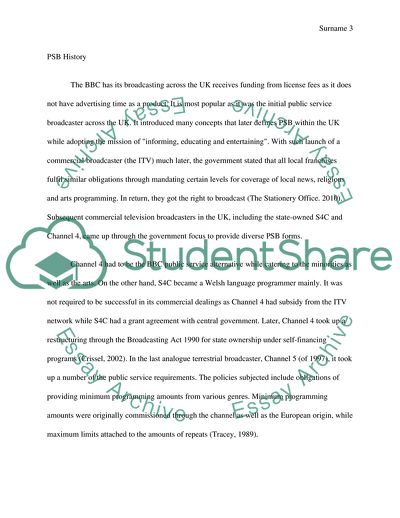Cite this document
(Public Service Broadcasting in Britain Report Example | Topics and Well Written Essays - 3750 words, n.d.)
Public Service Broadcasting in Britain Report Example | Topics and Well Written Essays - 3750 words. https://studentshare.org/journalism-communication/1816594-analyse-the-public-service-broadcasting-in-britain-and-what-role-it-plays-in-counter-balancing-commercial-broadcasting
Public Service Broadcasting in Britain Report Example | Topics and Well Written Essays - 3750 words. https://studentshare.org/journalism-communication/1816594-analyse-the-public-service-broadcasting-in-britain-and-what-role-it-plays-in-counter-balancing-commercial-broadcasting
(Public Service Broadcasting in Britain Report Example | Topics and Well Written Essays - 3750 Words)
Public Service Broadcasting in Britain Report Example | Topics and Well Written Essays - 3750 Words. https://studentshare.org/journalism-communication/1816594-analyse-the-public-service-broadcasting-in-britain-and-what-role-it-plays-in-counter-balancing-commercial-broadcasting.
Public Service Broadcasting in Britain Report Example | Topics and Well Written Essays - 3750 Words. https://studentshare.org/journalism-communication/1816594-analyse-the-public-service-broadcasting-in-britain-and-what-role-it-plays-in-counter-balancing-commercial-broadcasting.
“Public Service Broadcasting in Britain Report Example | Topics and Well Written Essays - 3750 Words”. https://studentshare.org/journalism-communication/1816594-analyse-the-public-service-broadcasting-in-britain-and-what-role-it-plays-in-counter-balancing-commercial-broadcasting.


